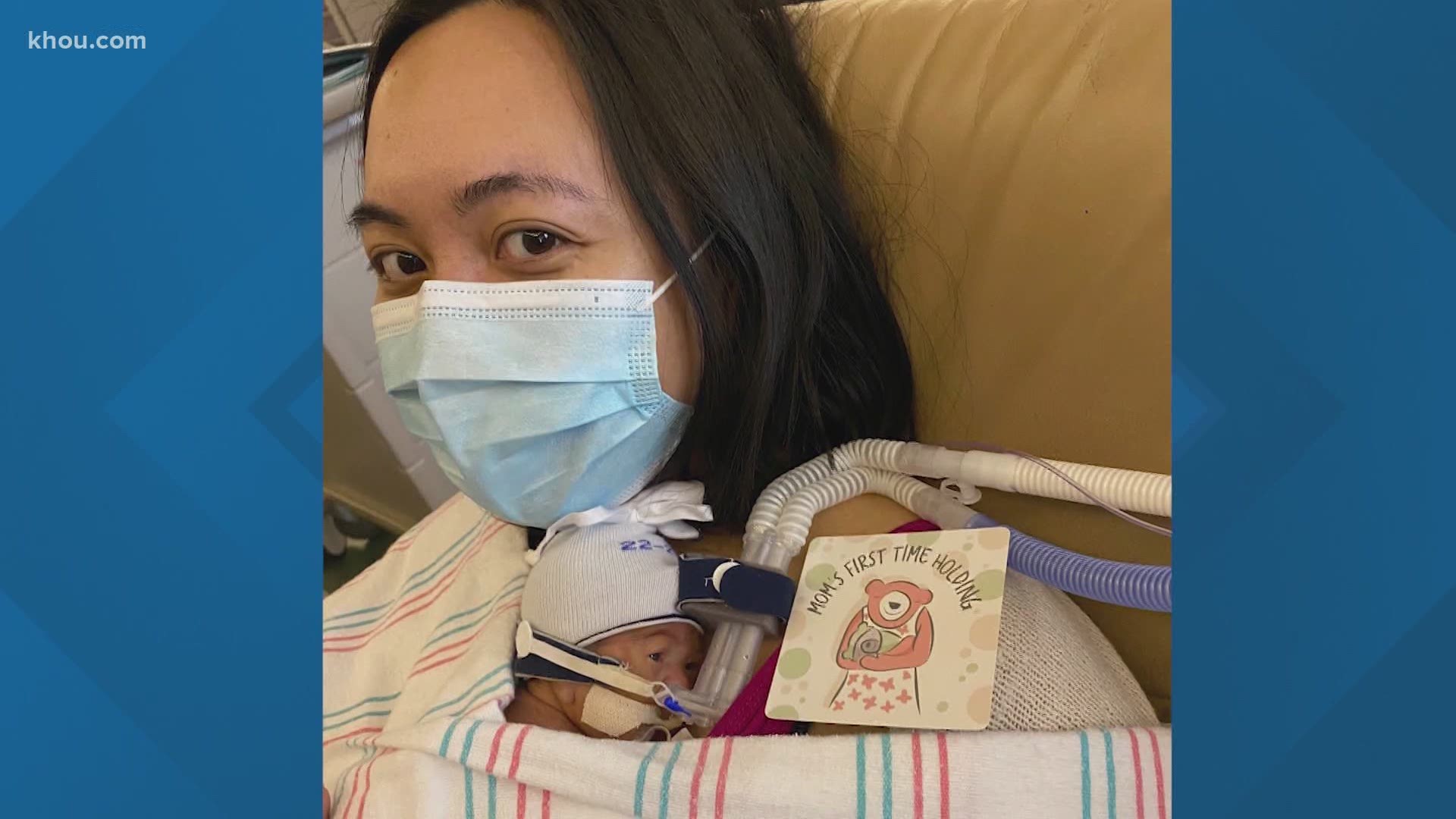HOUSTON — Christine Tran and her husband, Tony, tried to give their daughter a sibling for years.
It took five years, three miscarriages and IVF to finally get pregnant with their twins.
“As excited as I was, I was really scared to be happy. I didn’t want to feel that loss again,” Tran said.
24 weeks into her pregnancy, Tran noticed she had passed her mucus plug. She went to the hospital where her physician told her she was six centimeters dilated.
“It was pretty crazy when she came in. None of us were expecting her to be so far dilated, because she wasn’t feeling anything. It turned out she was in active labor and needed to be transferred via helicopter,” said Dr. Tamika Cross, UT Physicians/UTHealth.
RELATED: Memorial Hermann medical staff thanked with Turkey Leg lunches from NFL players, Houston rappers
She was rushed to Memorial Hermann Hospital in the Texas Medical Center.
After several days in the hospital, Tran delivered her twins. COVID-19 restrictions meant her husband couldn’t be in the operating room with her, so he witnessed his twins’ deliveries through FaceTime.
“They were telling me I would see a phone with him on it. I felt it was better than nothing, but it’s not the same as having a physical support person there with you,” Tran said.
Her son Nathan and daughter Hannah were born on April 3. Now, Nathan is just over 3 pounds, 3 ounces, and Hannah is 2 pounds, 15 ounces.
They’re still in the NICU, doing well.
“Every time you visit them, you have to go through the screening process. They check your temperature. They make you sanitize. You put on your face mask and you go in,” Tran said.
Tran said the unusual circumstances have made them even more grateful for their three beautiful kids.
“Even when (my daughter) is driving me crazy, and I feel like I can’t do one more second of Barbie and pretend play every day, I just look at her and say, 'You know what? You’re here with me. I’m thankful for that,'" Tran said.
Her Mother’s Day wish is her family will finally be home together by Father’s Day.
Coronavirus symptoms
The symptoms of coronavirus can be similar to the flu or a bad cold. Symptoms include a fever, cough and shortness of breath, according to the Centers for Disease Control. Some patients also have nausea, body aches, headaches and stomach issues. Losing your sense of taste and/or smell can also be an early warning sign.
Most healthy people will have mild symptoms. A study of more than 72,000 patients by the Centers for Disease Control in China showed 80 percent of the cases there were mild.
But infections can cause pneumonia, severe acute respiratory syndrome, kidney failure and even death, according to the World Health Organization. Older people with underlying health conditions are most at risk for becoming seriously ill. However, U.S. experts are seeing a significant number of younger people being hospitalized, including some in ICU.
The CDC believes symptoms may appear anywhere from two to 14 days after being exposed.
Human coronaviruses are usually spread through...
- The air by coughing or sneezing
- Close personal contact, such as touching or shaking hands
- Touching an object or surface with the virus on it, then touching your mouth, nose or eyes before washing your hands.
Help stop the spread of coronavirus
- Stay home when you are sick.
- Eat and sleep separately from your family members
- Use different utensils and dishes
- Cover your cough or sneeze with your arm, not your hand.
- If you use a tissue, throw it in the trash.
- Follow social distancing
Lower your risk
- Wash your hands often with soap and water for at least 20 seconds. If soap and water are not available, use an alcohol-based hand sanitizer.
- Avoid touching your eyes, nose, and mouth with unwashed hands.
- Avoid close contact with people who are sick.
- Clean and disinfect frequently touched objects and surfaces.
- If you are 60 or over and have an underlying health condition such as cardiovascular disease, diabetes or respiratory illnesses like asthma or COPD, the World Health Organization advises you to try to avoid crowds or places where you might interact with people who are sick.
Get complete coverage of the coronavirus by texting 'FACTS' to 713-526-1111.

